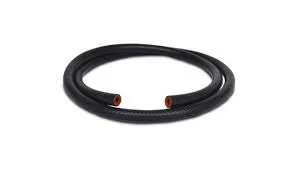Understanding the Differences Between Brake Hoses and Brake Lines for Optimal Vehicle Safety
Dùbh . 24, 2024 07:56 Back to list
Understanding the Differences Between Brake Hoses and Brake Lines for Optimal Vehicle Safety
Understanding Brake Hoses and Brake Lines Essential Components of Your Vehicle's Braking System
When it comes to vehicle safety, one of the most critical systems is the braking system. This system ensures that a vehicle can stop effectively, preventing accidents and ensuring the safety of passengers and pedestrians alike. Within this system, brake hoses and brake lines play an essential role. Understanding these components' functions and differences is crucial for any car owner or automotive enthusiast.
What Are Brake Lines?
Brake lines are rigid tubes that transport brake fluid from the master cylinder to the brake calipers or wheel cylinders. Typically made from steel or copper, these lines are designed to withstand high pressure and are coated or treated to prevent corrosion. The primary function of brake lines is to transmit pressure created by the master cylinder when the brake pedal is applied, enabling the vehicle to slow down or stop.
There are two main types of brake lines metal and flexible. Metal brake lines are generally used for the main parts of the braking system because they can handle pressure well and are less likely to be damaged. Flexible brake lines, on the other hand, are often found in areas where movement or flexing occurs, such as near the suspension components.
What Are Brake Hoses?
Brake hoses are flexible tubes made from rubber or reinforced synthetic materials, designed to connect the rigid brake lines to the brake calipers. They allow for movement as the vehicle's suspension works while also withstanding the high pressure created during braking. Brake hoses are crucial in areas where flexibility is necessary, such as where the wheels move up and down.
Unlike brake lines, brake hoses can expand slightly under pressure. This flexibility is essential to accommodate the vehicle's movement and prevent stress on the braking system components. Over time, however, brake hoses can degrade due to various factors such as heat, humidity, and exposure to abrasion. Regular inspection of brake hoses is vital to ensure they remain in good condition, as failure of a brake hose can lead to brake fluid leaks and significantly compromised braking performance.
brake hose and brake line

The Importance of Brake Hoses and Brake Lines
Both brake hoses and brake lines are integral to the proper functioning of your vehicle's braking system. They work together to transport brake fluid effectively, ensuring that the brakes engage and disengage as required. If either component fails, it can lead to several serious problems. For instance, a ruptured brake line can cause a total loss of braking power, while a cracked brake hose may result in fluid leaks, compromising the system’s pressure.
Maintaining Your Brake System
Maintaining the integrity of both brake hoses and brake lines is crucial for safe driving. Regular inspections should include checking for signs of wear and tear, such as cracks, bulges, or leaks. It is also essential to monitor the brake fluid level and ensure that the fluid remains clear and free of contaminants.
When servicing your vehicle, mechanics often recommend replacing brake hoses every 4 to 5 years, regardless of their apparent condition, due to the natural degradation of the materials. Brake lines, being more durable, might have a longer lifespan but should also be inspected regularly.
Conclusion
In summary, brake hoses and brake lines are vital components of a vehicle’s braking system. They facilitate the transfer of brake fluid and ensure that the brakes function correctly. Understanding their roles not only helps in appreciating how a vehicle operates but also emphasizes the importance of regular maintenance. By keeping an eye on these critical components, drivers can help ensure their safety and the reliability of their vehicle's braking system. Remember, prioritizing brake system checks can save lives and prevent costly repairs down the road.
Latest news
-
Seven-Layer Winding A/C Hose Type C-HEBEI KEMO AUTO PARTS TECHNOLOGY CO., LTD|Low Permeability&High Durability
NewsAug.29,2025
-
Seven-Layer Type C A/C Hose-HEBEI KEMO AUTO PARTS TECHNOLOGY CO., LTD|Automotive Air Conditioning Solutions
NewsAug.29,2025
-
Durable Automotive Fuel Line: Car, Diesel & E85 Hoses
NewsAug.27,2025
-
Automotive Fuel Line & Hose Solutions | E85 & Diesel Ready
NewsAug.26,2025
-
Reliable Automotive Fuel Line | E85 & Diesel Compatible
NewsAug.25,2025
-
Durable Car Heater Hose | Quality Automotive Preheater Pipes
NewsAug.24,2025
